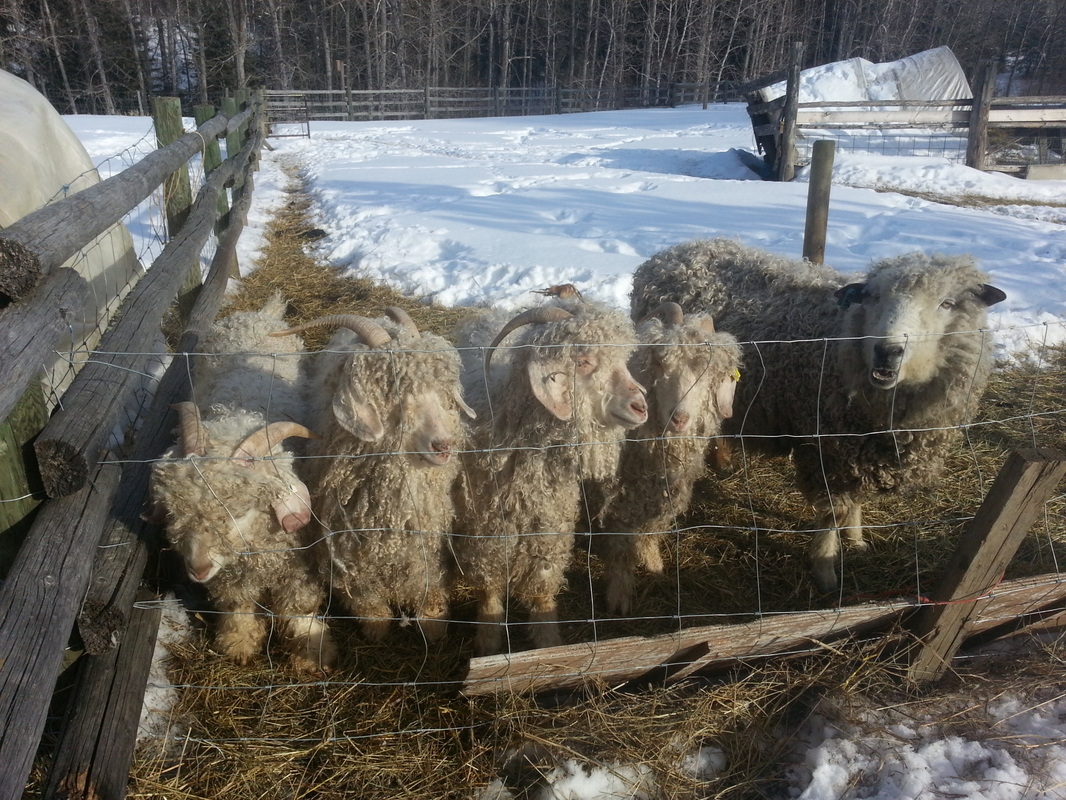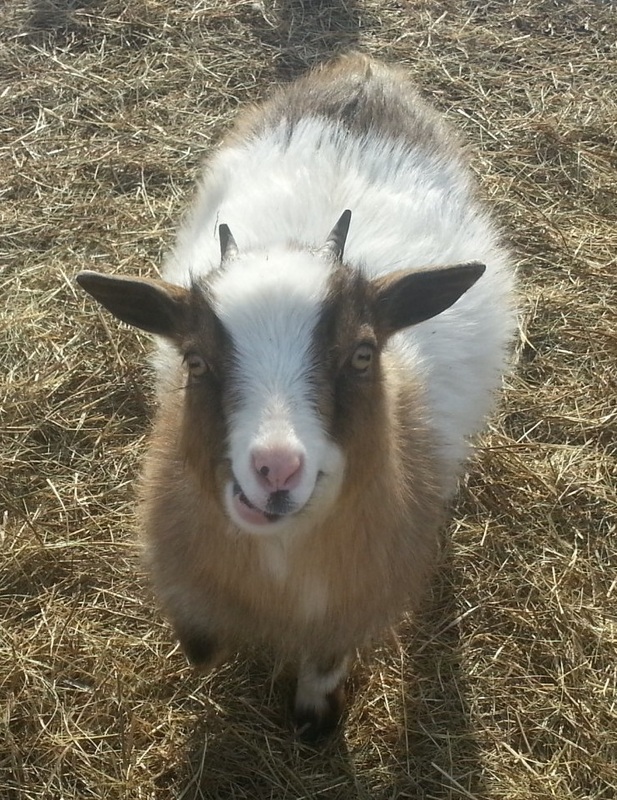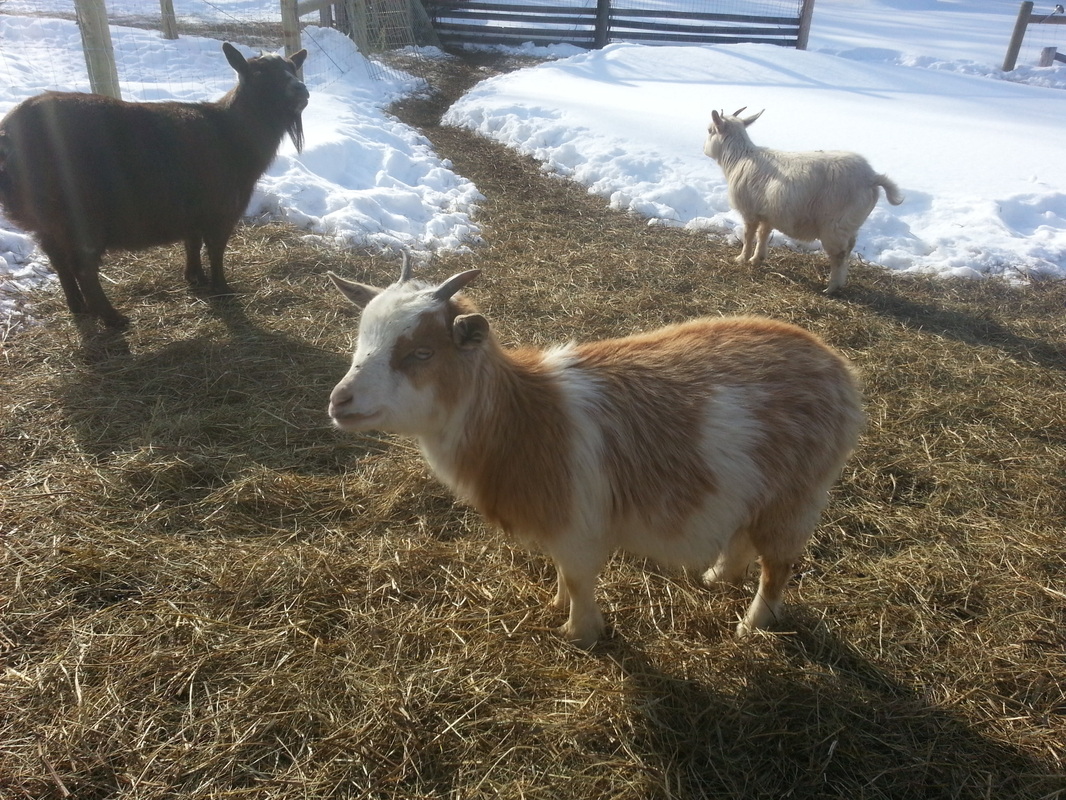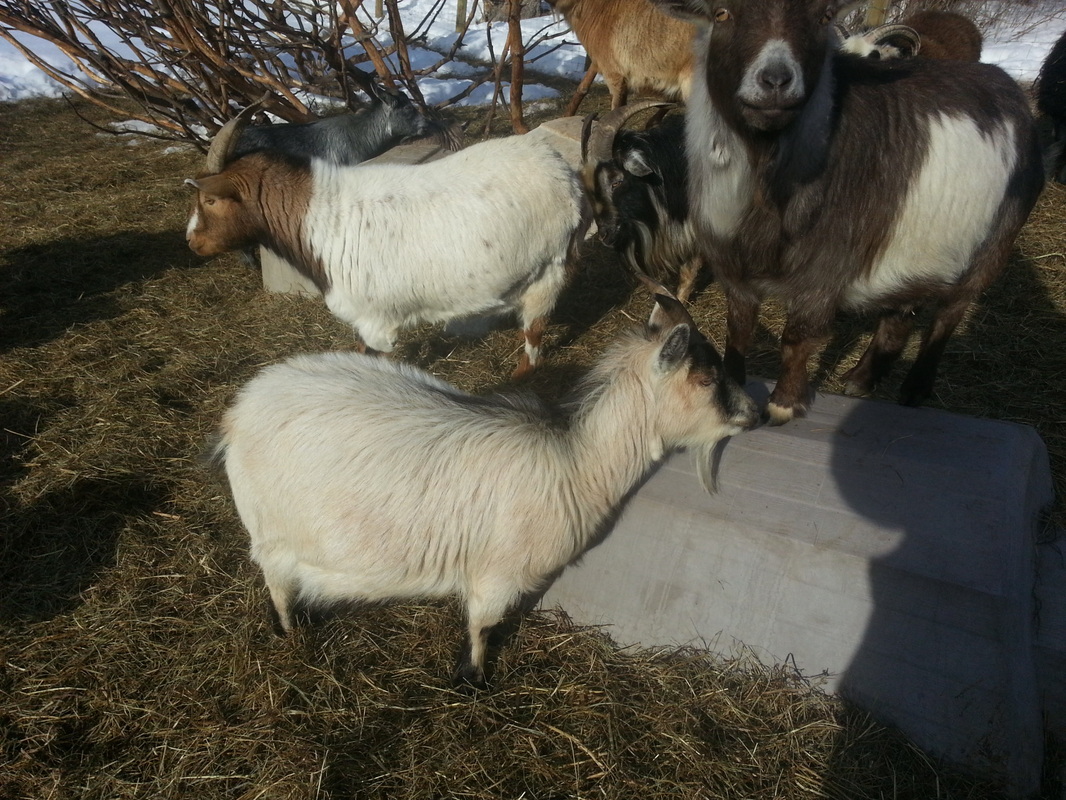Winter is very hard, since most hay is grass hay. They like alfalfa hay, but will only eat the tiny leaves and waste more than half of the expensive alfalfa. They need several supplements to fulfill their nutritional needs as well. A goat mineral, formulated for the area in which the goats are kept, is necessary. The soils need to be tested and then a general formula made to supply what is deficient. Without adequate levels of selenium and copper, goats can die and may also abort or produce off spring with a condition called white muscle disease, where the kids are floppy and cannot support their weight. Additional injections of selenium often help, but not always.
Males tend to get urinary calculi when fed grain. Goats are ruminants and thrive on forage, when it is the right kind, not grain. Grain is like candy to them, as it is to humans, and is converted to sugar. The fermentation of the the grain in the gut can cause bloating and goats cannot burp rumen gas, so they can bloat and die. Baby goats need to be introduced to grain slowly to prevent this, but natural forage feeding and no grain is best. To combat urinary calculi and keep body salts in line, goats should have free choice baking soda, both the males and females. Baking soda alkalizes the body, which grain causes to be acidic. Forage does not cause acidity because weeds are basically quite alkaline. Humans benefit from baking soda for this very same reason, to combat acidity in the body and return it to the alkaline state of health. Grain and sugar based diets are the ripe breeding ground, and acid system, for disease, whereas an alkaline system of green and coloured vegetation fights disease.
Goats also require salt and iodine. Mineralized salts that are free flowing and not in a block, are necessary to provide adequate amounts. Licking a block will not ensure the goats are getting all they need.
Goats who are pregnant often suffer an influx of worms upon delivery and should be wormed a week or 10 days before delivery and the day after. The Famacha eye test is a great predictor of the state of anemia of the goats. The whiter the inner rim of the eye, the more anemic the goat. A healthy goat should have a hot pink to almost red inner eye and does not require worming. A goat carrying an intense worm load will have a light pink eye. When the eye is white, it may be too late to do anything and the goat may die. Vitamin B shots should be administered along with a full spectrum wormer and then 10 days later repeated. Goat pellets are made from genetically modified grains and are full of pesticides and herbicides as well and should not be fed.
We are formulating a wormer from herbs containing a variety of herbs and garlic. The wormer can be made into a small ball the size of a large jaw breaker by mixing it with oatmeal and mollasses and hand feeding one to each goat daily for 2 weeks. The mixture will not kill worms, just make the environment inhospitable and the worms tend to leave to find a more suitable host. When chickens are kept with the goats, they will pick through the droppings and devour the worms, helping end the parasite cycle. Goat worms are not transferred to chickens, thank goodness. In the meantime, some of the goats seem to have become immune to the chemical wormer, Ivomectin and are not improving. We used Valbazen, but it cannot be used during pregnancy because it causes abortion or unstable fetuses. Currently, Mamma Theresa, a normally very hardy Pygmy, is suffering from a resistant worm overload. We tried Panacur and will redose her on Tuesday, plus give her a vitamin B shot to boost her blood and pray for her to recover. She is also pregnant and just not doing well.
Another goat has a skin condition that has not responded to antibiotics or antifungals, so a skin sample must be taken to the vet for analysis. She too, is pregnant, so caution must be extended. In addition to the wormer, feeding pine tree needles helps evacuate the worm population.
Goat babies cannot get a chill so we breed for kidding in June. That way the weather is warm and the kidding is done in the pasture, naturally, with no fear of frozen babies born in the dead of the night. Still, a good goat herder needs to be ever prepared with towels, tubes and needles to assist delivery and help the weaker kids.
So, goats are fun, yes, but likely the most difficult livestock to rear naturally. Are they worth it? You tell me.





 RSS Feed
RSS Feed